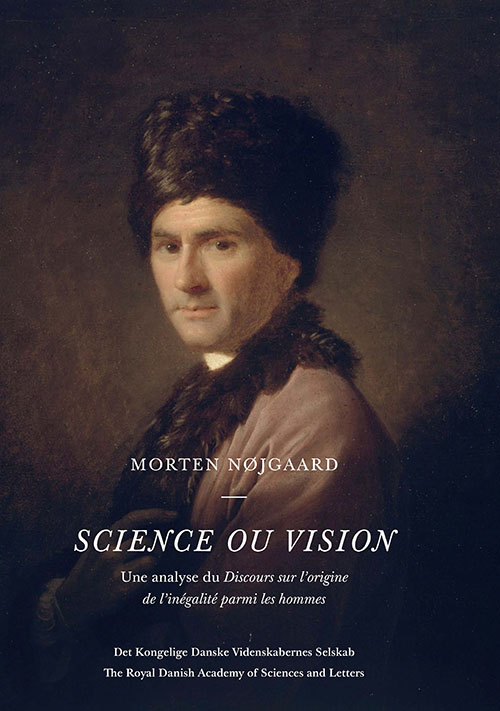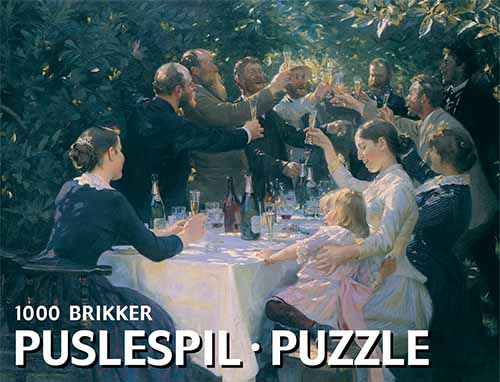- Gratis fragt over 799 kr.
- 3-5 dages levering
- Trustpilot
- Pricerunner
Leveringstid: Er under forberedelse
Science ou vision
Jean-Jacques Rousseau’s Second Discourse on the origin of equality (1755) is generally consider his most brilliant and most influential philosophical essay. Studied in universities over the world to this day, interpretations of the essay differ widely, as they have done ever since it was enthusiastically welcomed by his contemporaries and slated by Voltaire. The reason for the dissensions is that Rousseau, in the Second Discourse, lives fully up to his reputation as “a man of paradoxes”, permitting himself to defend a thesis as well as its opposite.
The aim of the book is to show that behind the paradoxes a profound mind is striving to produce a new and coherent picture of the childhood of mankind. To clear the way for Rousseau’s “deep thought” one must first eliminate the misleading interpretations which have marred the philosophical reception of the Second Discourse. Even some of its most fundamental concepts are often misunderstood by critics, for instance the so-called goodness of natural man, the idea of going back to nature or the equally incorrect assumption of the historic reality of the state of nature.
The author’s first step is to propose a clear definition of Rousseau’s basic concepts (liberty, compassion, perfectibility, reason et cetera). Secondly, he discusses the evidently contradictory arguments which render a consistent definition so arduous, trying to explain the paradoxes as results of the permanent conflict going on inside the man. This was the conflict between visionary reformer (whom we know from the Social Contract) and anthropologist/sociologist who conducts his investigation as rationally as any other modern scientist. Finally, the author establishes the evolutionary model constructed by Rousseau. According to him, humanity evolved through six stages (state of nature, family, landed property, bellum omnium in omnes, social contract, revolution of the slaves) before arriving at the actual conformation.
At the very end of the essay, Rousseau surprisingly launches an ambitious research project in social psychology. He proclaims the need to study not the social, but the mental mechanisms which, operating throughout the evolution, have changed the very nature of man, producing “an assembly of artificial men”. The visionary philosopher aims at laying the ground for a new human nature, that is to create “the new man”.
180,00 kr.
På lager: På lager
Forfatter: Morten Nøjgaard
Varenummer: 9788773044568
Sidetal: 212
Sprog: fre
Format: Hæftet
Jean-Jacques Rousseau’s Second Discourse on the origin of equality (1755) is generally consider his most brilliant and most influential philosophical essay. Studied in universities over the world to this day, interpretations of the essay differ widely, as they have done ever since it was enthusiastically welcomed by his contemporaries and slated by Voltaire. The reason for the dissensions is that Rousseau, in the Second Discourse, lives fully up to his reputation as “a man of paradoxes”, permitting himself to defend a thesis as well as its opposite.
The aim of the book is to show that behind the paradoxes a profound mind is striving to produce a new and coherent picture of the childhood of mankind. To clear the way for Rousseau’s “deep thought” one must first eliminate the misleading interpretations which have marred the philosophical reception of the Second Discourse. Even some of its most fundamental concepts are often misunderstood by critics, for instance the so-called goodness of natural man, the idea of going back to nature or the equally incorrect assumption of the historic reality of the state of nature.
The author’s first step is to propose a clear definition of Rousseau’s basic concepts (liberty, compassion, perfectibility, reason et cetera). Secondly, he discusses the evidently contradictory arguments which render a consistent definition so arduous, trying to explain the paradoxes as results of the permanent conflict going on inside the man. This was the conflict between visionary reformer (whom we know from the Social Contract) and anthropologist/sociologist who conducts his investigation as rationally as any other modern scientist. Finally, the author establishes the evolutionary model constructed by Rousseau. According to him, humanity evolved through six stages (state of nature, family, landed property, bellum omnium in omnes, social contract, revolution of the slaves) before arriving at the actual conformation.
At the very end of the essay, Rousseau surprisingly launches an ambitious research project in social psychology. He proclaims the need to study not the social, but the mental mechanisms which, operating throughout the evolution, have changed the very nature of man, producing “an assembly of artificial men”. The visionary philosopher aims at laying the ground for a new human nature, that is to create “the new man”.
| Vægt | 481 g |
|---|---|
| Størrelse | 18 × 155 × 232 mm |
| Forlag | Videnskabernes Selskab |
| Udgivelsesdato | |
| Serie | Series H – Humanistica 8 – vol.23 |
| Forfatter |
Relaterede varer
-
Bøger under 100 kr
State of Terror
85,95 kr.Original price was: 85,95 kr..68,76 kr.Current price is: 68,76 kr.. Tilføj til kurv -
prisvogter
Shackleton
105,95 kr.Original price was: 105,95 kr..84,76 kr.Current price is: 84,76 kr.. Tilføj til kurv
- Stort udvalg
- Fri fragt ved køb over 799,-
- Levering ned til 1-2 hverdage
- Nem retur
- 30 dages returret
Science ou vision
Forfatter: Morten Nøjgaard
SKU: 9788773044568
180,00 kr.
Leveringstid: Er under forberedelse
Format: Hæftet
Sprog: fre
Sidetal: 212
Jean-Jacques Rousseau’s Second Discourse on the origin of equality (1755) is generally consider his most brilliant and most influential philosophical essay. Studied in universities over the world to this day, interpretations of the essay differ widely, as they have done ever since it was enthusiastically welcomed by his contemporaries and slated by Voltaire. The reason for the dissensions is that Rousseau, in the Second Discourse, lives fully up to his reputation as “a man of paradoxes”, permitting himself to defend a thesis as well as its opposite.
The aim of the book is to show that behind the paradoxes a profound mind is striving to produce a new and coherent picture of the childhood of mankind. To clear the way for Rousseau’s “deep thought” one must first eliminate the misleading interpretations which have marred the philosophical reception of the Second Discourse. Even some of its most fundamental concepts are often misunderstood by critics, for instance the so-called goodness of natural man, the idea of going back to nature or the equally incorrect assumption of the historic reality of the state of nature.
The author’s first step is to propose a clear definition of Rousseau’s basic concepts (liberty, compassion, perfectibility, reason et cetera). Secondly, he discusses the evidently contradictory arguments which render a consistent definition so arduous, trying to explain the paradoxes as results of the permanent conflict going on inside the man. This was the conflict between visionary reformer (whom we know from the Social Contract) and anthropologist/sociologist who conducts his investigation as rationally as any other modern scientist. Finally, the author establishes the evolutionary model constructed by Rousseau. According to him, humanity evolved through six stages (state of nature, family, landed property, bellum omnium in omnes, social contract, revolution of the slaves) before arriving at the actual conformation.
At the very end of the essay, Rousseau surprisingly launches an ambitious research project in social psychology. He proclaims the need to study not the social, but the mental mechanisms which, operating throughout the evolution, have changed the very nature of man, producing “an assembly of artificial men”. The visionary philosopher aims at laying the ground for a new human nature, that is to create “the new man”.
| Vægt | 481 g |
|---|---|
| Størrelse | 18 × 155 × 232 mm |
| Forlag | Videnskabernes Selskab |
| Udgivelsesdato | |
| Serie | Series H – Humanistica 8 – vol.23 |
| Forfatter |
Relaterede varer
-
prisvogter
Husband Material
85,95 kr.Original price was: 85,95 kr..68,76 kr.Current price is: 68,76 kr.. Tilføj til kurv -
Bestsellers
My Mechanical Romance
82,95 kr.Original price was: 82,95 kr..66,36 kr.Current price is: 66,36 kr.. Tilføj til kurv -
Bøger under 100 kr
Among Thieves
85,95 kr.Original price was: 85,95 kr..68,76 kr.Current price is: 68,76 kr.. Tilføj til kurv
- Stort udvalg
- Fri fragt ved køb over 799,-
- Levering ned til 1-2 hverdage
- Nem retur
- 30 dages returret










